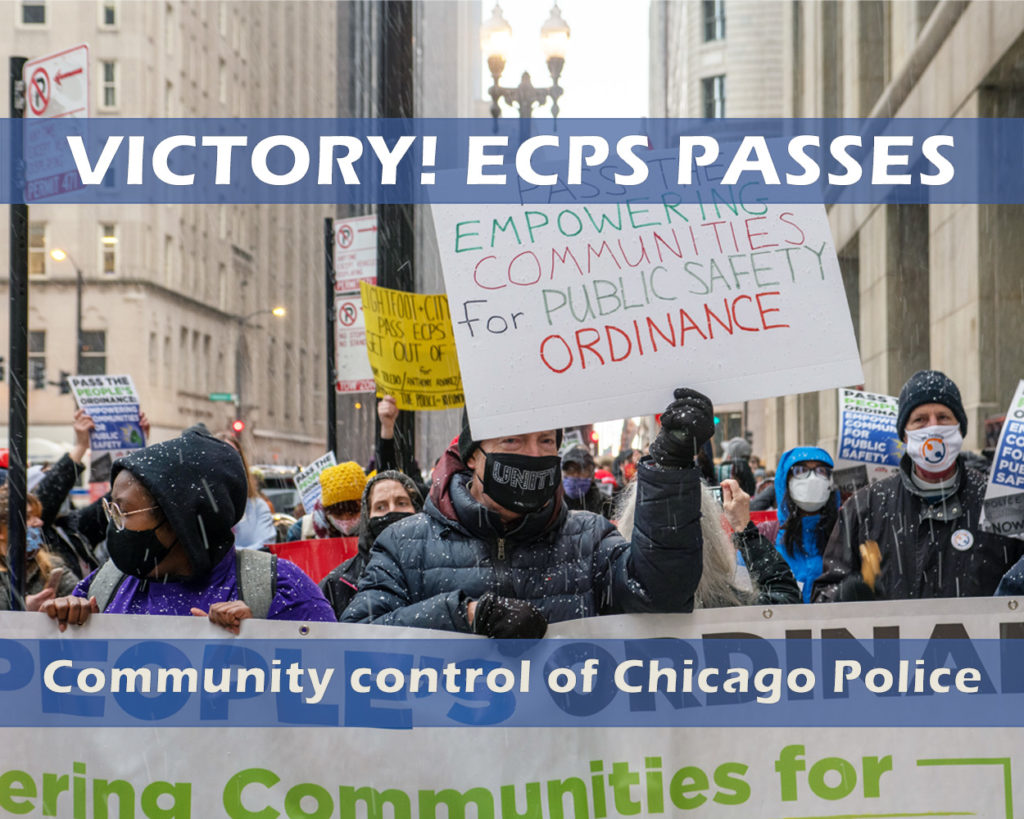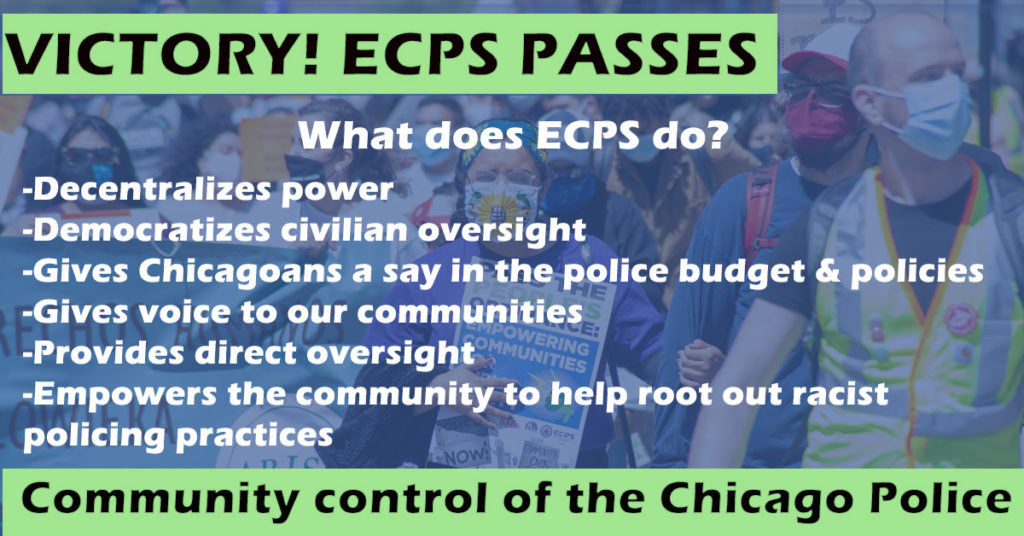ECPS Passes Chicago City Council. What’s it mean?

Civilian Control of the Chicago Police
Today we celebrate the Empowering Communities for Public Safety (ECPS) ordinance, which vaults Chicago to the forefront of public safety change-making.
ECPS allows for localized public safety solutions that empower the community. Because the solutions to transforming policing and building safer neighborhoods here in Chicago lie within our communities.
It’s a transformative shift in how Chicago handles public safety for the better. ECPS centers the community in policing and creates an 11-member, elected Civilian Oversight Commission, the strongest example of directly-elected civilian oversight in the nation.
We are adding resources to the police in the form of community voices, support and solutions. Because for too long, our voices have been left out or even silenced. But with this ordinance, that changes once and for all.
Thanks to the tireless work of advocates, labor leaders, working people and everyday Chicagoans, we now can celebrate a new future where we all count and all our voices will be heard.
What does this ordinance do?
Decentralizes power: Power in policing here in Chicago has always been centralized with the police and the Mayor. Now, there is an added layer of power with an elected civilian oversight board and more community participation, shifting power away from traditional centers and toward the communities directly affected by policing.
Democratizes civilian oversight: Strongest version of civilian oversight in the country with a 7-member elected board that is representative of our city. Must have members from South, West, North sides in addition to a city-wide member; two members ages 18-24; and members who have had negative encounters with police.
Gives Chicagoans a say in the police budget and policies: Policing accounts for 42 percent of Chicago’s budget, yet Chicago voters haven’t had a say in how the money is spent. Civilian commission will be able to enact policies from chokeholders to foot chase to bike policies to body cameras.

Gives voice to our communities: Allows for and encourages citizen participation in the policing process. With 2,000 signatures, concerned citizens can get a public hearing on issues related to the police department and the commission must hear it (Ex: Can create a platform for young activists or who have been fighting for things for years but haven’t been heard.)
Provides direct oversight: Empowers civilian commission to hire and fire the chief administrator of COPA, the investigatory body over police force, and does the same thing for the police board, which is the accountability and decision-making body of police. The commission can initiate a vote of no confidence in the police superintendent.
Empowers the community to help root out racist policing practices: Our broken policing system in Chicago has victimized far too many communities of color for far too long. This ordinance shifts power away from traditional centers and toward the communities directly affected by policing.
Why are unions involved?
As unions led by working people across our city, we care about quality of life and giving people a voice over the conditions that affect their lives. And that means a lot more than just what happens within the confines of your work.
SEIU Healthcare Illinois members number more than 100,000 working people and when we unite, we cannot be ignored. It’s time for the voices of frontline healthcare workers who are also our brothers, sisters, neighbors and friends to be heard as they demand solutions and a brighter future.
As a labor movement and as working people who keep our city and state economies running, we have a responsibility to step up and a role to play in slowing the violence and finding solutions. That’s why we are united behind ECPS as a major step forward.
How is this ordinance different from other big cities?
This is the strongest, most robust ordinance in American when it comes to police oversight and community participation. The closest thing is the City of Los Angeles, which also has a robust oversight board, but it is not an elected board; it is entirely appointed by the Mayor of Los Angeles. Here in Chicago, the board will be elected by Chicago voters.
Who is part of the ECPS coalition?
ECPS is a coalition of community, advocacy, faith, and labor organizations. It’s an historic coming-together of the CPAC and GAPA coalitions – which have unified behind ECPS – together represent over 100 community and faither organizations and have garnered the support of more than 100,000 Chicagoans.
